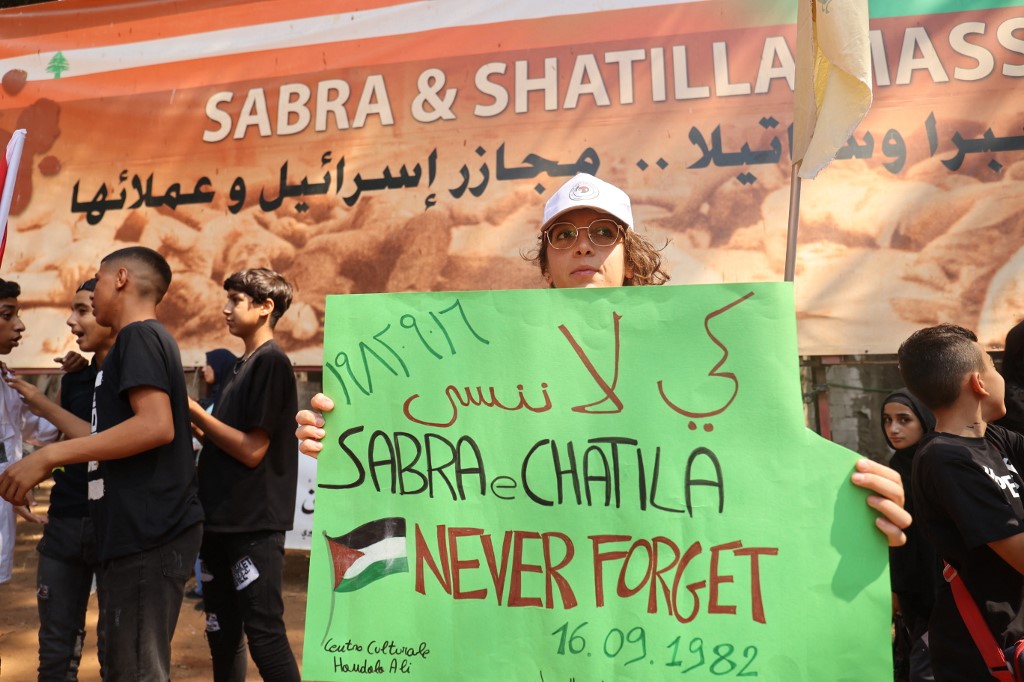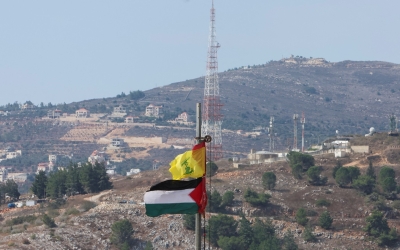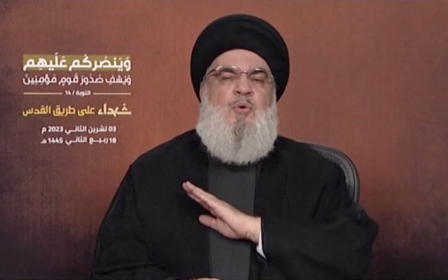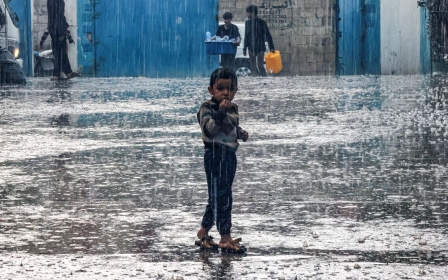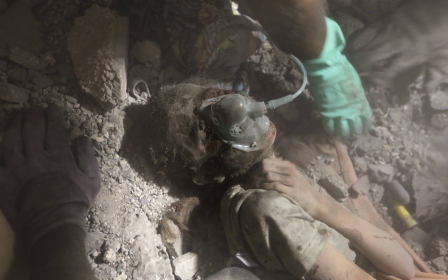Israel-Palestine war: Do you want to understand the Gaza war? Look at the Beirut siege of 1982
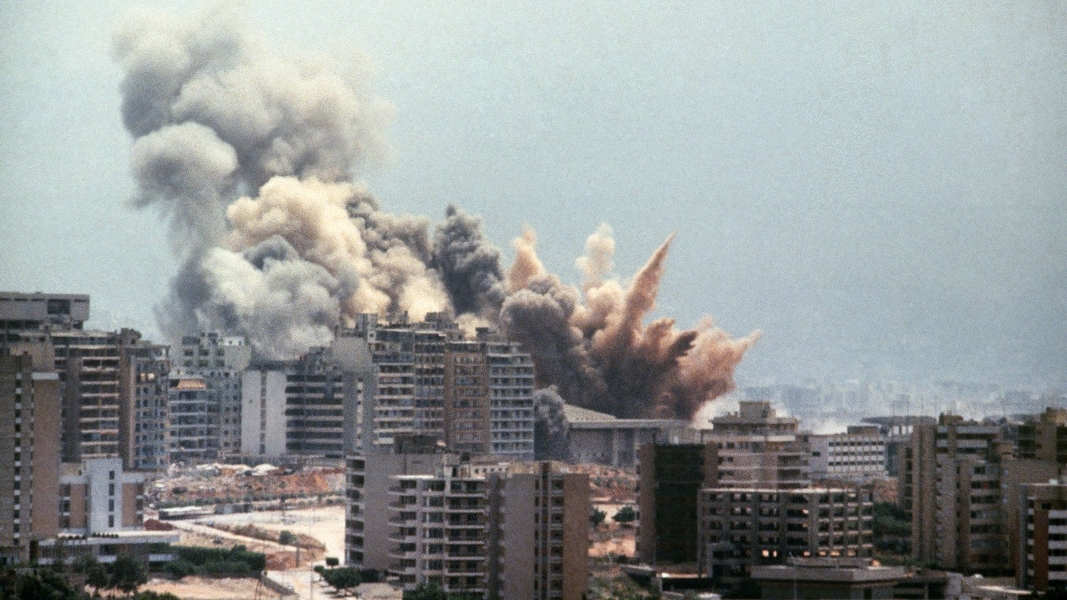
Under heavy bombardment, manhunts and food shortages, 19-year-old Ghassan Jnaynati and his friends set up their own bakery to allow people a space to prepare food with what they still had left.
Israel’s siege of Beirut in 1982 cut the western half of the city of food, water, electricity, and transportation - a situation that has some similarities with what is currently happening in Gaza.
Recalling his experience, however, Jnaynati believes the situation in Gaza is too dire to entirely resemble what happened in Beirut.
“There is no comparison between what is currently going on in Gaza and what happened in 1982,” he said.
Nevertheless, experts believe the circumstances that led to the situation in both cities makes it useful to look at Beirut for potential insight into Gaza’s future.
New MEE newsletter: Jerusalem Dispatch
Sign up to get the latest insights and analysis on Israel-Palestine, alongside Turkey Unpacked and other MEE newsletters
In the 1980s, when Lebanon was in the middle of its 15-year-long civil war, Israel, aided by its allied right-wing Lebanese militias, invaded the country, reaching as far as the Lebanese capital and besieging its western half.
Outside of Palestine, Beirut was the first and only Arab capital to be occupied and besieged by Israel.
'Palestinians in Palestine'
The initial goal, according to the Israelis, was to eliminate Palestinian armed groups operating against Israel from Lebanon, namely the Palestine Liberation Organization (PLO), which in some sense was the Hamas of its day.
“Israel has set certain objectives for this operation: the elimination of Hamas,” said history scholar Wassim Mroue. “[This] reminds us of the objectives that Israel set in 1982 which was the elimination of the PLO and driving it out of Beirut.”
Follow Middle East Eye's live coverage of the Israel-Palestine war
Israeli officials have, on several occasions, drawn out different objectives for their ongoing war in Gaza, ranging from the complete dismantlement of Hamas to the evacuation of its leaders to other countries.
Their current war started after a Hamas-led assault on southern Israel killed around 1,200 Israelis.
Israel’s air strikes and subsequent ground invasion killed over 11,000 Palestinians, including 4,500 children, and destroyed much of the northern half of the besieged Palestinian region.
While the PLO eventually surrendered and left Beirut, the context in Gaza may not necessarily provide a similar outcome.
“The PLO were Palestinians in Lebanon,” Mroue added. “But in Gaza, these are Palestinians in Palestine.”
While Israel can attempt to besiege Gaza in order to force Hamas to surrender, the events that follow may be different than what happened with the PLO.
“What does Hamas giving up mean,” asked Mroue. “They might continue to have support.”
'No other option'
According to Mroue, Israel’s siege and continued bombardments were a pressure tactic to force Beirut’s residents to demand the PLO's departure.
While Israeli armoured vehicles patrolled the city’s surrounding roads, children were seen queuing for water while piles of burned garbage filled the streets. Adults anxiously waited for food rations from the Red Cross, with smoke from bombed out buildings filling the skies.
“There were no indicators [in 1982] that the balance of power could be altered in favour of the PLO... So, for many Beirutis, there was no other solution but for the PLO to leave'
- Wassim Mroue, Lebanese historian
While civilians, as well as Lebanese political and paramilitary leaders were initially divided over the expulsion of Palestinian fighters, Mroue said the weeks-long blockade and bombardments made many feel like their options were scarce.
“There were no indicators that the balance of power could be altered in favour of the PLO,” he added.
“The Soviet Union did not interfere, Syria had a limited engagement with the Israeli army but then signed a ceasefire, [and] Arab countries did nothing practical to stop this invasion.
"So, for many Beirutis, there was no other solution but for the PLO to leave.”
The PLO eventually agreed to leave the city in August of the same year, with a multinational force overseeing the evacuation of most of the group’s fighters. Israel then lifted its blockade.
'Do not shoot, we are retreating'
In contrast to the current situation in Gaza, Israeli forces, due to a US-brokered agreement, remained on the outskirts of Beirut throughout the siege.
Following the departure of the PLO, it hoped to achieve its second objective: install a friendly government in Lebanon and have it sign a peace agreement.
Only after this plan was halted, due to the assassination of pro-Israel Lebanese president-elect Bashir Gemayel, did it decide to properly invade the city.
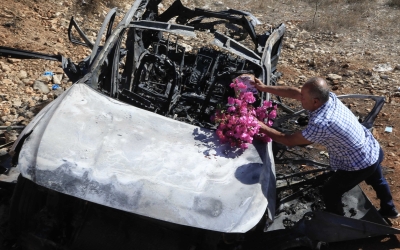
The absence of Palestinian fighters along with the removal of most barricades made it difficult for Lebanese Muslim and secular left-wing forces to prevent the Israeli advance.
The popular resistance that followed the occupation, however, was a different obstacle for the Israelis.
Jnaynati, the Beirut resident, said: “[The Israelis] entered the streets, penetrated them, and at night the people of Beirut would shoot at them, frighten them.”
A young Jnaynati eventually escaped to the mountains, as Israeli forces were rounding up youths from each region of Beirut, many of whom were non-combatants.
Both Jnaynati and Mroue mentioned the Wimpy Operation, where a Lebanese man, Khaled Alwan, shot and killed an Israeli soldier in a West Beirut cafe, as a turning point in Lebanese attacks on Israeli soldiers.
Local media claimed Alwan motivated people to take up arms against their occupiers, even as the latter were retreating from the city.
The siege and subsequent occupation killed thousands of Lebanese citizens and Palestinians, mostly civilians. Many factors, including international pressure, contributed to Israel’s eventual withdrawal from West Beirut by the end of September.
One scene, however, remains engrained in the minds of Beirut residents: an Israeli soldier, in a tank, screaming through a speaker: “People of Beirut, do not shoot at the Israeli Defense Forces, we are retreating.”
“The fact that they said so indicates that a major reason for them to leave was the rising, mounting armed resistance,” Mroue said.
'We are capable of facing this'
Despite driving out the PLO and permanently weakening its effectiveness as a military force, Israel was never able to eradicate the movement. In fact, Palestinian fighters continued low-level operations for years after 1982.
Another unintended consequence of Israel’s invasion of Lebanon was the creation of Iran-backed militant movement Hezbollah, now seen as the most powerful paramilitary group in the Arab world.
Israel gradually withdrew from several regions of Lebanon, and left the remaining occupied areas of the south in 2000, under heavy pressure from the local resistance led by Hezbollah.
“It got pressured in the south and left under Lebanese hands,” Ibrahim Mneimneh, Lebanese member of parliament representing the Beirut districts that were once occupied, told Middle East Eye.
Following its withdrawal, Israel attempted, for a second time, to defeat its newfound enemies in Lebanon. The country fought a month-long war with Hezbollah in 2006, ending in a stalemate and the failure of Israeli forces to inflict a detrimental blow to the group.
Currently, alongside its war in Gaza, Israel has been dealing with regular border clashes with the Lebanese militant group on its northern border. The clashes have killed over 60 Hezbollah fighters, at least 12 Lebanese civilians, and an unclear number of Israeli soldiers and civilians.
In the past few days, several Israeli officials and journalists have threatened to bombard Beirut should Hezbollah try to provoke them. Israeli Defence Minister Yoav Gallant even went as far as saying they would do to the Lebanese capital the same things they are currently doing in Gaza.
Mneimneh said that, due to the events of 1982, many residents are unafraid of recurring Israeli threats against the capital.
“In a way, there is a remembering of the memory that we are capable of facing this,” he said. “I do not think the trauma of 1982 is present in the way one would imagine it.”
'No one knows what the Israeli madness might lead to'
- Ibrahim Mneimneh, Lebanese MP
Mneimneh says that when considering a potential spillover of the Israel-Palestine war into parts of Lebanon, people are more worried about an Israeli air strike campaign like the one seen in 2006.
On a similar note, Mroue said that Hezbollah’s numbers, arsenal, and combat experience make an Israeli ground invasion of Lebanon highly unlikely, as the militant group is far more powerful than the PLO was in the early 80s.
Amid continuous fears of war, Axios quoted Biden administration officials claiming US officials are concerned Israel might try to provoke Hezbollah and Lebanon into a wider war, which would force the Americans to get involved.
Reacting to this, Mneimneh said the additional presence of American and western military forces in the region may have emboldened Israel to bring about such a scenario.
“No one knows what the Israeli madness might lead to,” he added.
This article is available in French on Middle East Eye French edition.
Middle East Eye delivers independent and unrivalled coverage and analysis of the Middle East, North Africa and beyond. To learn more about republishing this content and the associated fees, please fill out this form. More about MEE can be found here.


